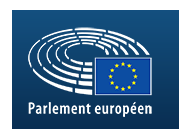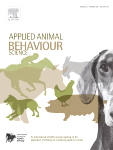Document type : French National Assembly written answer published in the Journal officiel de la République française
Authors: Question: Dimitri Houbron (Agir ensemble - Nord). Answer: Ministry of Agriculture and Food
Question: Mr Dimitri Houbron draws the attention of the Minister of Agriculture and Food to farming conditions in fish farms. For optimal rearing conditions, fish must have access to an enriched environment, with regular monitoring of water quality parameters (oxygen, pH, salinity carbon, ammonia and temperature). The space available to the fish, as well as their density, is also a key factor in their welfare. High densities can cause injury and damage to the health of the fish. Scientific research would appear to show that a stimulating environment has a positive effect on the welfare of the animals as it allows the expression of natural behaviours and cognitive development and seems to reduce stress. However, in fish farms, the environment provided by the tanks or cages is often poor or even entirely devoid of facilities. More regular monitoring of water quality, as well as enrichment of the living environment, could improve living conditions, but also the quality of the fish, benefiting producers and consumers. Therefore, he would like to know what measures the Minister plans to implement to improve the living conditions of farmed fish.
Answer: Improving the living conditions of farmed fish is a necessity, both because it meets a strong public expectation and because the animals' welfare has a direct impact on their health and guarantees the quality of the products offered to consumers. In recent years, professional fish farmers have undertaken several actions to improve the welfare of their fish. Thus, in 2018, following the "Etats généraux de l'alimentation", professionals in the sector drew up the first industry plan for sea fishing, and the products from fish farming and shellfish farming. This sector plan, with particular input from the CIPA (Interprofessional Committee for Aquaculture Products), identifies the welfare of farmed fish as one of the sector's priority issues where efforts must continue to be made. Action 9 of the sector plan "Develop research on animal welfare and the sharing of good practice in this regard" echoes this commitment. Work will focus on researching and formalising new animal welfare indicators and on the creation of a tool to help manage animal welfare on farms by identifying good practices. This objective is included in the national strategic plan for sustainable aquaculture, which is currently being revised. In addition, in February 2019, the "Fish Welfare" platform was created, co-led by the French Reference Centre for Animal Welfare and CIPA. The aim is also to work on the definition of welfare indicators, by species and by farming system. Work is also being carried out to objectivise the effects of density and to evaluate slaughter methods. Two projects were able to start in early 2020: the first welfare indicators are being tested and an evaluative survey of practices is being carried out to identify those that are potentially critical. At the same time, actions to raise awareness among professionals are being carried out, along with experiments on environmental enrichment. In addition, the issue of farmed fish welfare has been included in the fisheries and aquaculture section of the government's recovery plan. The dissemination and sharing of knowledge, particularly in the field of animal welfare in aquaculture, is one of this plan's objectives. At European level, the welfare of farmed fish has already been the subject of two European Commission reports: the first in September 2017, "Welfare of farmed fish: current practices during transport and slaughter" and the second in March 2018, "Report from the Commission to the European Parliament and the Council on the possibility of introducing certain requirements regarding the protection of fish at the time of killing". Since 2018, this issue has also been addressed within the framework of a voluntary initiative by members of the European platform for Animal Welfare. It is in this context and taking into account these previous recommendations that the strategic guidelines for the development of sustainable European aquaculture were drawn up and published on 12 May 2021, which will be used in particular to guide the support provided to the aquaculture sector by the future European Maritime Fisheries and Aquaculture Fund (EMFAF). This European fund will be implemented at national level at the beginning of 2022.






